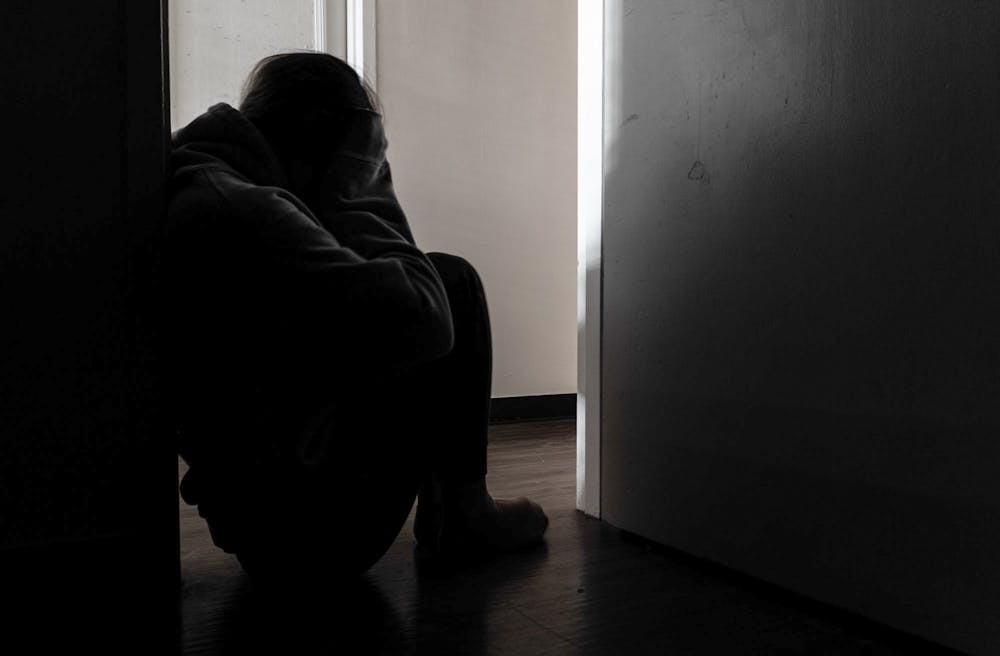Alicia Freeman, alcohol and other drug prevention/mental health awareness and stigma reduction coordinator at UNC, said in an email statement that individuals typically experience early warning signs and symptoms of a mental health challenge prior to experiencing a crisis.
A mental health crisis entails a life threatening mental health challenge, which can include things such as medical emergencies, suicidal thoughts and behaviors, severe effects of alcohol or drug use, or severe psychotic states, she said.
Freeman said a number of factors influence a mental health crisis, such as untreated anxiety or depression.
“It could also include things like traumatic experiences, racial trauma, ongoing stress and even exacerbated medical conditions,” she said.
In terms of anxiety and depression, Jonathan Abramowitz, a professor in the Department of Psychology and Neuroscience at UNC, said in an email that the signs an individual may experience can differ.
One of the main signs of depression include "feeling sad most of the day on most days." There could also be a loss of interest in things the person usually enjoys, feelings of worthlessness, hopelessness, helplessness, trouble concentrating, changes in eating, sleeping and thoughts of self harm, he wrote.
Abramowitz added that we all experience anxiety and depression from time to time.
“But signs of clinically severe anxiety include feeling restless, wound up, or on edge, having trouble concentrating or your mind going blank, problems controlling racing thoughts and worries, increased muscle tension and trouble with sleep and restlessness," he wrote.
When approaching an individual who is displaying some concerning behavioral changes, Cook said the best thing to do is approach the situation from a open and non-judgmental place — from a place of concern without any sort of shaming or blaming.
Cook added that in these conversations it is best to point out the specific behavioral changes instead of dancing around them, to ask open questions, to be as validating as possible and to be open to whatever they have to say.
“‘Gosh, I noticed that you've been sleeping more and I haven't seen you out as much, or you haven't come to dinner with us, and you usually do and I'm wondering if everything's okay.’” Cook said. “‘...I've missed seeing you on the weekends when we've hung out, and I'm wondering if things were okay,’ or, ‘you've seemed a little bit more sad. I noticed you crying in our room the other night and just wondered if there was anything you want to talk about.’”
When someone says they are thinking about harming themselves or sound like they are considering it, it’s usually best to take action, Abramowitz said.
To get the day's news and headlines in your inbox each morning, sign up for our email newsletters.
Start by asking questions to find out if the person is in danger of acting on their thoughts and feelings. For example: how are you coping with what's been happening in your life? Do you ever feel like just giving up? Are you thinking about hurting yourself or suicide? Have you ever thought about suicide before, or tried to harm yourself before? Have you thought about how or when you'd do it? Do you have access to weapons or things that can be used to harm yourself?
That being said, Cook said that the biggest thing CAPS wants people to know is that when having these conversations, it doesn't mean the person bringing the conversation up has the responsibility of helping the other person to get better since that is a job for professionals.
“So we never want students to feel responsible for anyone else's health or safety," Cook said. "We want them to just know the resources so they can then get the student connected to what the best thing is.”
Some ways a student can do this is by offering to walk the other student to CAPS, to call CAPS together, speaking with a community director or to connect with whatever feels most comfortable, Cook said.
The UNC School of Social Work offers free access to Mental Health First Aid, a free eight-hour training program available to UNC faculty, staff and students that can be taken in the span of one or two days, according to UNC School of Social Work’s website.
Freeman said Mental Health First Aid helps individuals recognize the signs and symptoms of mental health challenges that may impact adults, evaluate the impact of early intervention and many other course objectives.
“The MHFA program helps to destigmatize seeking mental health support,” Freeman said. “The earlier folks are connected to treatment the better the outcome for that individual.”
If a peer is in imminent danger, like if the person is about to or has taken any action to harm themselves, CAPS encourages folks to call 911, Cook said.
If you or someone you know is thinking about suicide, the National Suicide Prevention Lifeline, 1-800-273-8255, is available 24/7. It is free and confidential.
UNC students who need assistance during this time may contact Counseling and Psychological Services, the Office of the Dean of Students or Student Wellness. CAPS can be reached 24/7 by phone at 919-966-3658. University employees can reach out to the Employee Assistance Program.
Peer supporters from the student-run organization Peer2Peer, which offers mental health resources for graduate and undergraduate students, can be reached through its online form. Students can choose to remain anonymous.
university@dailytarheel.com



